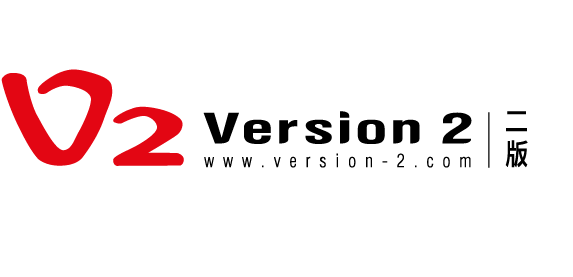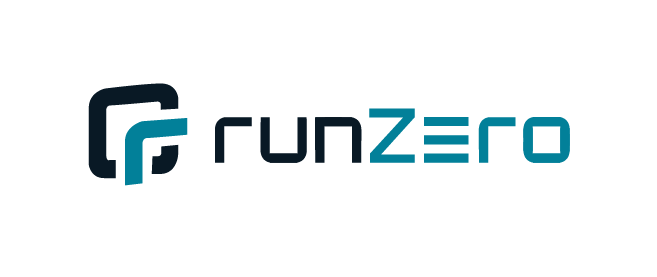I once managed a product line when I didn’t even have access to revenue figures. Looking back now, that seems unthinkable. How was I supposed to manage a business when I didn’t even know how it was doing? I’m going to bet many others have a story like that too: where a culture of secrecy kept them from effectively doing their job.
In contrast, at runZero, we work at creating a culture of transparency: an environment where information flows between different levels of the organization and employees feel comfortable asking questions and sharing feedback.
When the executive team openly communicates with their employees, it builds trust and respect. In turn, employees are more likely to be productive and act in the best interest of the company. At tech companies, employees especially need access to accurate, up-to-date information to do their jobs well.
Ultimately, a culture of transparency leads to success because everyone is on the same page and working towards the same goals. Let’s dive into the specific values we’ve developed to promote and nurture transparency within our company.
Decentralize decision-making
Cultural value: “We provide transparency about decisions and the state of the business so everyone can make the right decisions autonomously.”
At runZero, transparency is a fundamental part of the way we do business. We focus on openness, so everyone knows the expectations, trusts each other, and feels confident in their role.
This level of transparency plays out in a variety of ways. At our monthly virtual town halls, for example, we are open about our standing as a company, where we are going, and what’s coming next. Our town halls deliver detailed information on financials, business performance, and even our cash position. We intend to be as honest if our cash position ever changes for the worse (though it hasn’t happened yet at the moment). By building trust and being transparent, everyone at runZero will feel like they are part of our successes and solutions.
When it comes to strategic planning, leaders provide context on the business to the team ahead of time, even if final decisions aren’t made yet. Leadership needs to be vulnerable in order to do this. They need to be able to admit that they don’t have all the answers yet, but are willing to share where they are in the process. This approach fosters collaboration and invites feedback. These are key elements to solving complex problems. We also take this approach in our one-on-one meetings.
We don’t pretend to have all the answers and understand that our employees may feel some degree of ambiguity in the face of such openness. This mindset allows for a free exchange of ideas between leadership and staff and promotes an environment where key players can work together to come to a consensus. The openness and directness of our leadership encourages employees to participate in the brainstorming process, ensuring that we make decisions based on collective wisdom instead of individual opinion.
When employees are confident in the knowledge they have, they can make the informed decisions independently, instead of expending time and resources asking for approvals internally. Transparency is essential for creating an environment where autonomous decision-making is not only accepted but encouraged.
The line between confidentiality and transparency
While transparency helps keep everyone in the loop, there are certain aspects of any business that must remain confidential, such as employee data and other human resources type information. In these cases, full transparency is not always the best solution.
In fact, during times of rebranding or restructuring, it’s better to wait until the new direction is clear before sharing any information widely, so it doesn’t create confusion. Information shared in confidence, for example about performance or health issues, should also not be shared widely.
However, our internal communication will always strive to be as honest and transparent as reasonably possible. We trust our employees to handle sensitive matters with utmost discretion and integrity.
Foster transparency through sharing
Cultural value: “We reward people who share information rather than hoard it.”
Information hoarding and siloed decision-making leads to inefficient processes and mistrust inside an organization.
Employees often hoard information to protect themselves from negative perceptions or to make themselves more valuable in the organization. However, when employees feel secure and comfortable in their environment, information hoarding becomes unnecessary.
That’s why we model and reward information sharing and transparency. For example, runZero’s Google Drive is fairly open—almost any employee has access to the files, except for those pertaining to sensitive information like human resources or finance. Generally speaking, however, employees can dig around for all kinds of data: company stats, dashboards, Hubspot data, and more. If employees can investigate, they can find solutions. In turn, we give them recognition for finding those solutions.
By providing tools like these and encouraging employees to use them openly and confidently, we avoid the issue of information hoarding altogether.
Help candidates grow through transparency
Cultural value: “If we turn a candidate down and we have helpful feedback, we offer to provide it.”
Sharing feedback with a candidate during the hiring process can be one of the most challenging tasks for any leader. Not only do we have to choose our words carefully, so that the message is constructive, but we also have to pick information that is truly valuable for the candidate’s growth. We also give the candidate the option to decline feedback, as we know sometimes that it can be a hard pill to swallow, depending on their circumstances.
The most difficult type of feedback is about someone’s potential. Oftentimes, this feedback may not consist of more than general comments about their capabilities or capacity for growth. It can be hard to deliver this type of feedback without it being demoralizing. So, we try to encourage candidates, while giving clear guidance on what specific improvements to help them understand what we are looking for at runZero. You never know what could happen: a few years down the line, the candidate could improve with feedback, timing shifts, and they end up being just the right fit for runZero.
We want the best fit for everyone involved. Anyone interviewing a candidate for runZero will be open and transparent, and we look for that to be reciprocated. We really listen for people with a growth mindset and who value transparency as much as we do.
Be honest with customers
Cultural value: We only take deals that are mutually beneficial partnerships. We take an honest, consultative approach to selling. We don’t pressure customers into sales if runZero is the wrong solution.
At runZero, we pride ourselves on our commitment to fair and transparent pricing. We are honest with our customers about what our product can do and if their requests exceed its capabilities, it’s best that everyone knows sooner rather than later. It saves everyone time in the long run. The sales team can disqualify the deal earlier and spend more time on deals with a higher likelihood to close. Disqualifying a deal builds trust and helps the customer understand the problems we can solve for them – and some return later when they are looking for a solution to those problems. The company experiences a higher renewal rate because customers weren’t oversold.
This approach benefits both parties in different ways: by being upfront about what our product can do, buyers benefit from a service that actually gives them what they need, while sellers don’t waste time trying to convince someone of a product that ultimately won’t work for them.
By committing to this type of customer service, we hope to help create an environment where buyers and sellers form trusting relationships.
The foundations of a great team and company
Open and honest dialogue is the cornerstone of any healthy team. Carrying out transparency in everything we do creates deeper connections between employees, leaders, and customers. We understand that fostering a supportive environment means that everyone should have access to information needed to be successful in their roles.
Creating a culture of transparency guides us at runZero every day. So if you’re looking for a role where transparency is in our DNA, we’d love for you to join us.
About Version 2
Version 2 is one of the most dynamic IT companies in Asia. The company develops and distributes IT products for Internet and IP-based networks, including communication systems, Internet software, security, network, and media products. Through an extensive network of channels, point of sales, resellers, and partnership companies, Version 2 offers quality products and services which are highly acclaimed in the market. Its customers cover a wide spectrum which include Global 1000 enterprises, regional listed companies, public utilities, Government, a vast number of successful SMEs, and consumers in various Asian cities.
About runZero
runZero, a network discovery and asset inventory solution, was founded in 2018 by HD Moore, the creator of Metasploit. HD envisioned a modern active discovery solution that could find and identify everything on a network–without credentials. As a security researcher and penetration tester, he often employed benign ways to get information leaks and piece them together to build device profiles. Eventually, this work led him to leverage applied research and the discovery techniques developed for security and penetration testing to create runZero.




